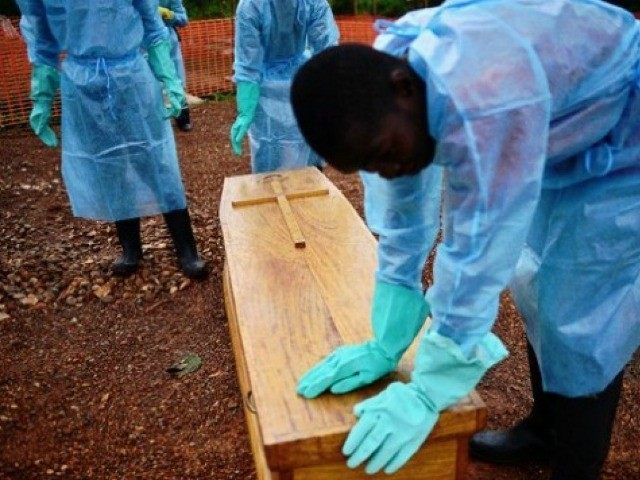The World Health Organization (WHO) reports that, after a brief period of decreased cases, health officials are witnessing an increase in the number of Ebola cases in Guinea, Liberia, and Sierra Leone as people resume traditional–and dangerous–burial rituals.
A cycle of individuals not seeking out medical attention, dying of Ebola without receiving a diagnosis, and being buried using traditional burial practices that require exposure to the deceased’s bodily fluids is particularly hindering Sierra Leone’s progress in eradicating the disease. “Not only have these individuals not received potentially life-saving treatment, but other members of the community have been put at greater risk of exposure,” warned the World Health Organization of undiagnosed Ebola victims.
The WHO reported they tracked 39 unsafe burials in Guinea and 45 in Sierra Leone this week. They also noted a number of “security incidents” in Liberia, though the number of new cases in that country, once overwhelmingly the most threatened by the disease, has been negligible.
While the WHO did not relay any specifics about Liberia’s security efforts, local news outlets have reported some issues with keeping Ebola patients isolated. One patient in particular, a pregnant nurse, reportedly “deliberately tried to infect the staff of the S.D. Cooper Hospital in Sinkor” by disguising herself multiple times and reentering the triage room without identifying herself as an Ebola patient.
In light of reports that the number of Ebola cases throughout West Africa has diminished, many have returned to using burial practices that expose them to the disease. Health experts also note, however, a rise in popularity of conspiracy theories blaming America and the West for bringing Ebola to Africa, and even conspiracy theories claiming Ebola never existed at all. “Some people don’t want to believe that their family member has Ebola, they don’t want the concept of Ebola to exist. Others believe we (international aid workers) are stealing people’s organs in the treatment centres, or that Ebola was made up to get aid money,” UK Dr. Nathalie MacDermott told Reuters.
While all Ebola-infected countries are threatened by widespread dangerous behavior, Sierra Leone appears especially on the brink of a major resurgence of the outbreak. The government began door-to-door Ebola inspections this week in an eastern district of Freetown, Port Loko, where the number of cases has been rapidly ascending. Sierra Leone’s authorities have also warned that they have seen an increased number of incidents where families have hidden patients from medical professionals, an extremely unsafe practice that has contributed to the rise in cases.
“Teams of health workers backed by security personnel are trekking into outlying areas and knocking on doors of houses … to check whether people are telling us the truth about not hiding sick people,” Morlai Dumbuya, a coordinator of the door-to-door efforts, told AFP. “So far we have not met any resistance and people are co-operating.”
In addition to contending with the increase in cases, Sierra Leone has had to respond to accusations that millions of dollars in Ebola funding has gone missing; though the funding has been spent, there has not been a single corroborating document stating where it has been applied. While the government has vowed a full investigation, it has also barred the media from freely speaking about the report that Ebola money has allegedly gone missing. For official purposes, the report is considered “opinion,” such that “any attempt to discuss the Auditor General’s opinion in any media will be tantamount to contempt of Parliament,” according to the nation’s senior legislative authority.

COMMENTS
Please let us know if you're having issues with commenting.